There are a few things to keep in mind when deciding whether to wear goggles or not. First, consider the visibility of the water. If the water is murky or dirty, wearing goggles can help you see where you are going and avoid obstacles.
Second, think about the distance you will be swimming. If you are swimming a long distance, you may want to wear goggles to help you stay on course. Finally, consider the weather conditions. If it is windy or sunny, wearing goggles can help protect your eyes from the elements.
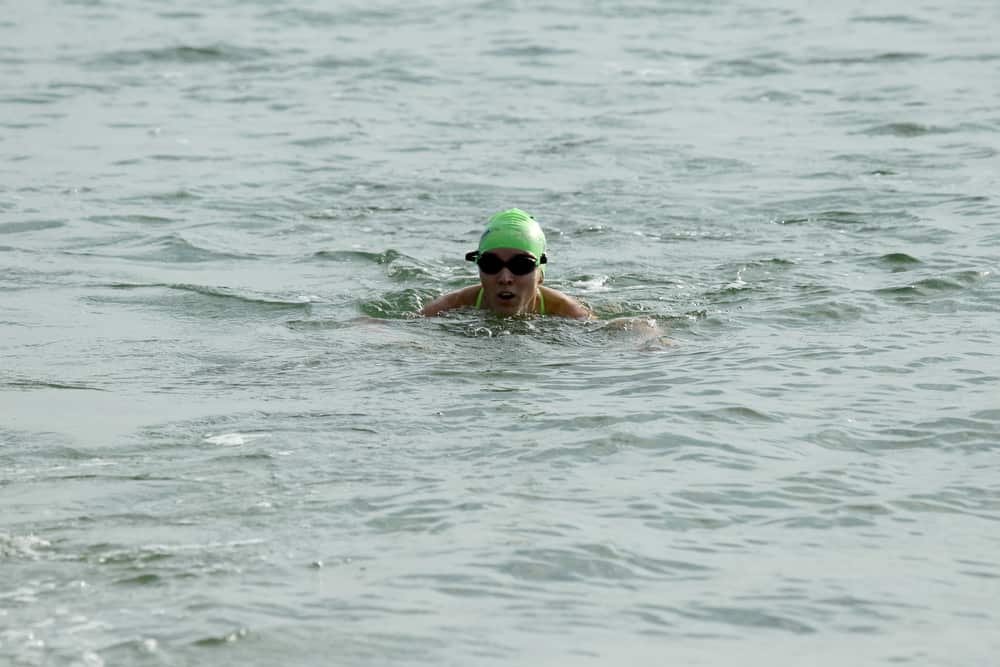
If you wear goggles when swimming in open water, ensure they fit correctly. Goggles that are too loose can fall off and cause you to lose your way. Goggles that are too tight can be uncomfortable and make it difficult to see. Try on a few different pairs of goggles until you find a team that is just right.
Whether or not you decide to wear goggles when swimming in open water, always be aware of your surroundings and swim with caution. Stay close to shore and take breaks often if you need to. Following these safety tips, you can enjoy a swim in open water, no matter your preference.
Table of Contents
How can I swim straight without goggles?
Swimming without goggles can be tricky, but you can learn how to do it with practice!
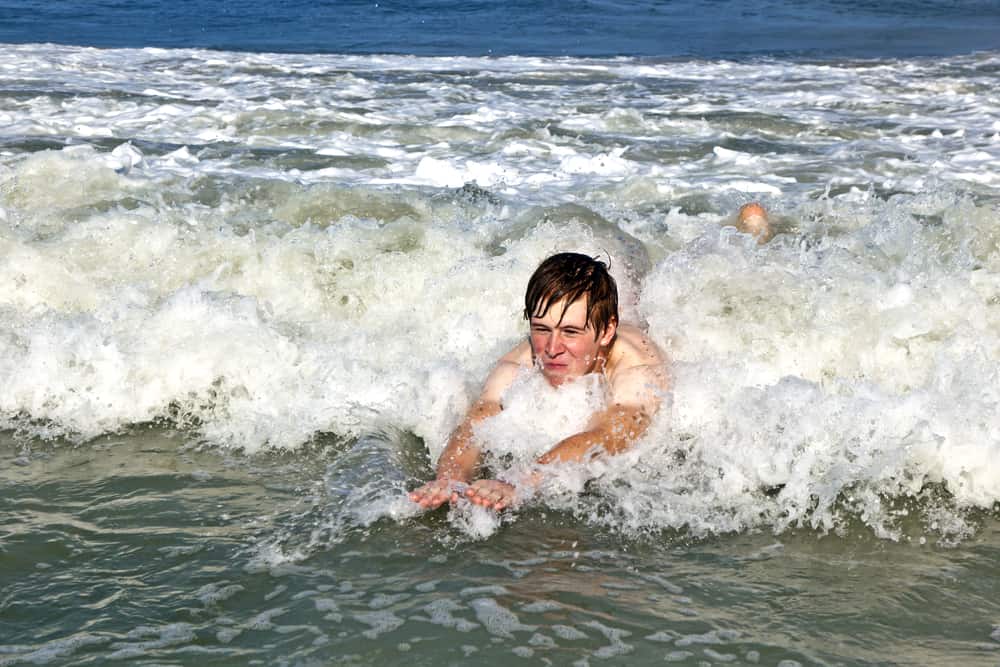
Here are a few tips to help you get started:
- Start by swimming in a straight line without any distractions. This will help you get used to swimming in a straight line.
- Use a pool lane marker or some other object to help you stay on track. When you’re starting, it can be helpful to have something to focus on so you don’t end up swimming, off-course.
- Keep your body aligned with your head and shoulders facing forward. This will help you maintain your course and swim more efficiently.
- Use your arms and legs to propel yourself forward, and keep your strokes consistent. Swimming with a consistent stroke will help you stay on course.
- Please take a deep breath and hold it while you swim, then exhale as you reach the end of your stroke. This will help you stay focused and swim more efficiently.
Swimming with goggles can help you stay on course and swim straighter. However, if you need goggles or prefer not to use them, these tips should help you.
Why do people use swimming caps?
People use swimming caps for a variety of reasons. Some people wear them to keep their hair from getting wet and heavy, while others wear them to protect their hair from the sun’s harmful rays. Swimming caps can also keep your head warm in cold water and make you more streamlined, improving your speed.
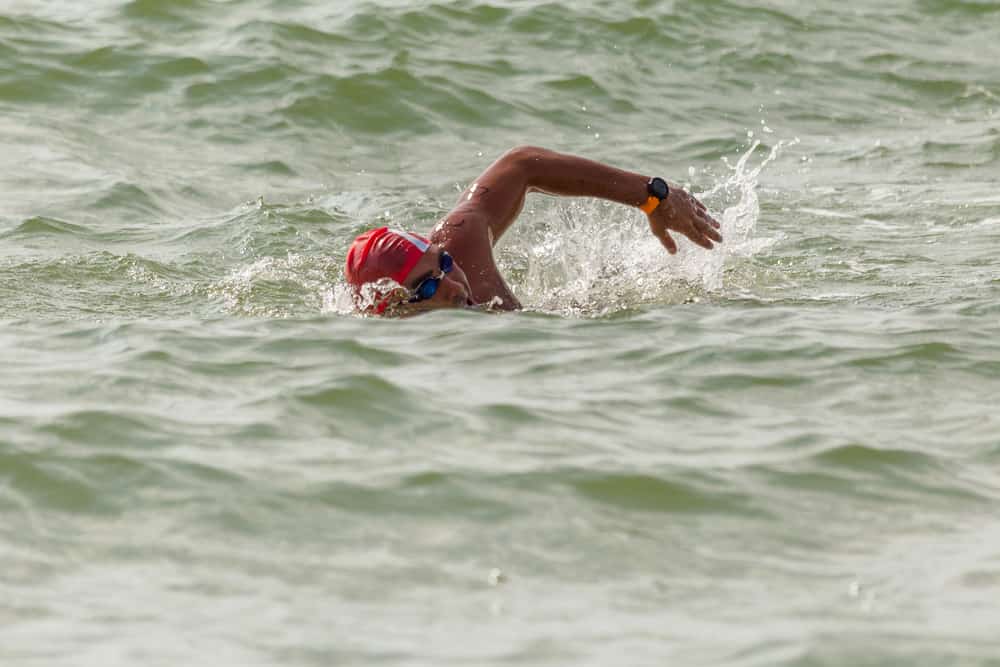
No matter your reason for wearing a swimming cap, they are essential for any swimmer. So make sure to grab one before your next trip to the pool.
How to Open Your Eyes Underwater Without Goggles on and Not Hurt
If you’re ever in a situation where you need to open your eyes underwater but don’t have your goggles, don’t worry – there are a few different methods you can use that will let you do just that.
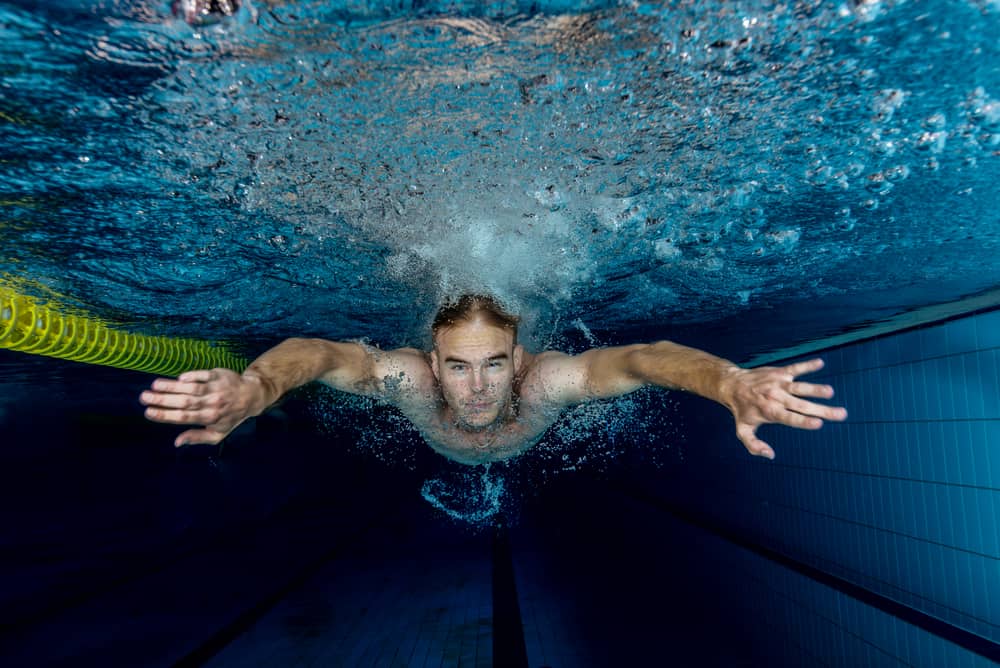
The easiest way is to cup your hands over your eyes and slowly open them. This will let in a small amount of water, but it won’t hurt, and you should be able to see just fine.
Another way to do it is to pinch your nose shut and then open your mouth as wide as possible. This will create a small opening for the water to come in, and again, it shouldn’t hurt.
Finally, if you’re stuck and can’t seem to open your eyes no matter what, try swimming up to the surface of the water and taking a deep breath. Once you’ve got some air in your lungs, hold it in and dive back down. This will create a small air bubble around your eyes which will help protect them from the water.
No matter which method you choose, take it slow and be careful not to get too much water in your eyes. And most importantly, don’t panic – opening your eyes underwater can be tricky, but with a bit of practice, you’ll be able to do it with no problem.
Essential Skills & Tips for Your Next Open Water Swim
Open-water swimming can be an incredibly exhilarating experience, but it also comes with its own set of dangers. If you’re planning on taking the plunge into open-water swimming, ensure you’re well-prepared by following these essential skills & tips.
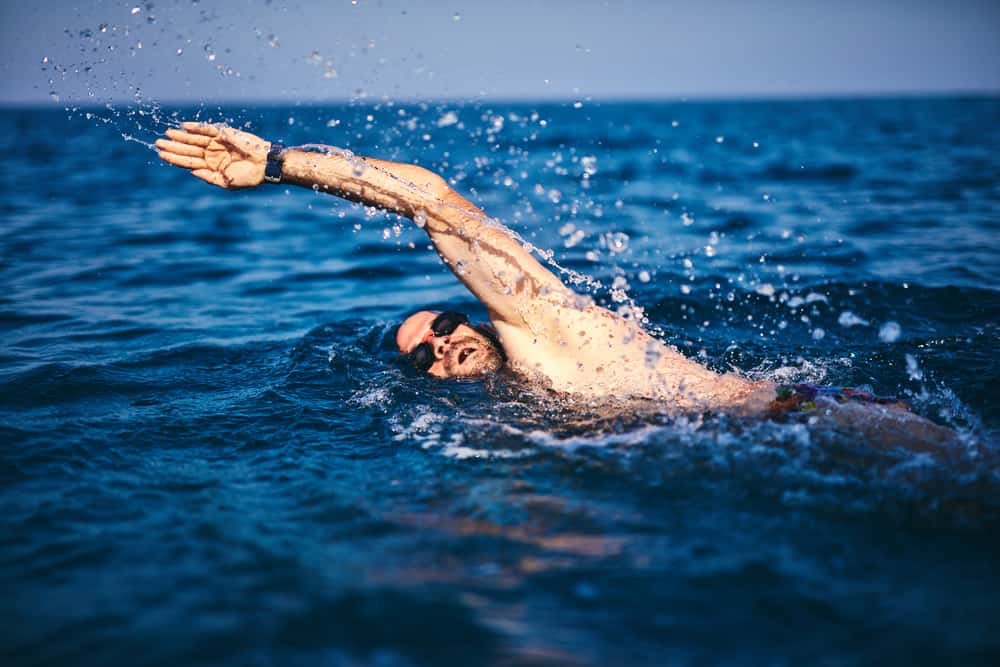
Mastering the right techniques
Open-water swimming can be very different from swimming in a pool. Ensure you are familiar with the techniques required for open-water swimming before hitting the waves. This includes learning to navigate choppy waters and stay afloat in open water.
Staying safe in dangerous conditions
Even if you’re an experienced swimmer, always take caution when swimming in open water. Be aware of your surroundings and be prepared for any potential hazards, such as strong currents or jellyfish. Always swim with a buddy and let someone know where you’re going and when you’ll be back. And never swim alone in open water – especially if there are sharks!
With these essential skills & tips, you’ll be ready to tackle any open-water swim confidently. Just remember always to take caution and be prepared for anything. Now get out there and enjoy the exhilarating experience of swimming in open water.


